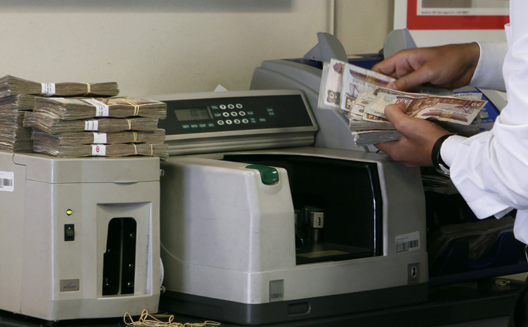Dopay does banking for unbanked Egyptians

Dopay, one of the early startups to get involved in Egypt's financial technology sector, is hoping to build a web of clients among the country’s unbanked masses.
The startup is London-headquartered but its business is mostly in Egypt. It’s created a cloud-based payroll service that employers can use to pay staff with and without bank accounts, the latter being paid via a Dopay account that is linked to a debit card.
Founder Frans Van Eersel said the company had signed up around five startups as customers and it’s targeting smaller companies with 50 to 100 employees, before scaling the service for larger businesses.

Bringing banking to the under-banked
Dopay launched to solve the problem of how to remove the cash element of employee payments when many - Mastercard research suggests around 65 percent of all Egyptians - don’t have bank accounts.
“There’s a huge potential [in Egypt],” Van Eersel said. “We are talking about 20 million, 30 million or 40 million that we think we can get [as clients].”
The startup launched in June 2014 as a technology platform and, because it doesn’t have a banking license, it offers its banking services through Barclays.
“We were part of the Barclays accelerator program,” Van Eersel said. “Barclays was one of the first financial institutions that realized that the whole financial industry is going to change.”
Dopay set its sights on gradually offering three financial services in Egypt: a platform or software for businesses, a card for individual employees, and a smartphone application that lets Dopay users pay bills or transfer money to other people.
“All the people that you have in your contact list and that have [a] Dopay account will be shown,” Van Eersel said. “There is a big trend in Europe and in the US where you see that banking and banking services are getting separated.”
The software allows the details of an employee and their contract information to be added to calculate the salary to be paid and where it goes. This is done through a selected payment option, whether it’s a bank account or a Dopay visa card for the unbanked employees.
The company raised $2.4 million from investors earlier this year and has spent most of the money in Egypt, in order to develop the company’s offerings there. Most of the company’s revenue will come from businesses who buy the payments software.

Transaction approved
Van Eersel said the Central Bank of Egypt had finally allowed the company to work via Barclays - effectively piggy-backing off the international institution’s existing licence to provide banking services rather than have to get its own.
It means Dopay can pay employees through Barclays, but Van Eersel said within two to three months Dopay would hopefully be approved to make payments through all banks.
With Dopay Visa cards, employees can withdraw cash from any ATM. Withdraws from Barclays will always be free while employees who use other ATMs are charged EGP 5 (US64c) after the first three transactions.
Twenty five debit cards were issued in early August, and Van Eersel expected the number to touch several hundred by the end of this month.
“You have to understand that if you work with an international bank, as Barclays, you have to go through a whole process of compliance and that took quite a bit,” he said. “We have final approval next week and we can start rolling out.”
Barclays also is part of an Egyptian government program called the 'cashless society' in which the government wants all its employees to receive their salaries via ATM rather than in cash. Although the proposal has been delayed, Dopay was supposed to supply the prepaid cards.
What’s next for Dopay?
Currently, Dopay is working on developing the bill payment services option within the app.
The company also hopes the money transfer option can be developed to include more than just Dopay users, but that depends on approvals from Barclays and the Central Bank of Egypt.
“I am an entrepreneur; I want it yesterday but realistically I think we are looking at early next year,” Van Eersel said.
The company is also thinking about introducing a ‘partner card’, offered to the original card holder’s spouse.
Competition
Phone companies Etisalat, Mobinil and Vodafone have already introduced their own versions of mobile money, which are open to the unbanked. But these don’t allow access to ‘new economy’ businesses such as Uber, which requires a credit card on sign up.
The startup Fawry introduced a prepaid card which allowed online payments, and other companies such as PayFort have created work-arounds on their websites that allow payments to be made later at banks or Fawry terminals.
With some banks offering prepaid cards and similar companies such as Pay Mob, another financial service company located in the GrEEK Campus, Dopay could face some stiff competition.
Van Eersel, however, doesn’t see any rivals for the direction his company intends to go.


